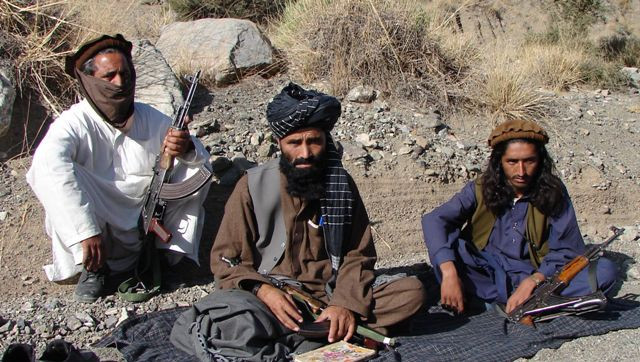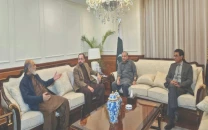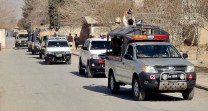Pakistani Taliban in talks to heal rift: Sources
Commanders trying to heal damaging rift that has inflamed tensions over whether to pursue peace efforts.

After months of relative calm, bomb and suicide attacks are again hitting Pakistan's northwest, raising fears that militants are again on the offensive despite reports late last year that commanders were exploring peace contacts.
"The one-point agenda is how to adopt a uniform policy," a Taliban commander told AFP from an undisclosed location on condition of anonymity.
The umbrella Tehreek-i-Taliban Pakistan (TTP) is a loose confederation of rival commanders. Divisions first came to the fore after founder Baitullah Mehsud was killed in a US drone strike in August 2009.
The young and radical Hakimullah Mehsud - a clan relation to Baitullah - ultimately won a leadership battle, pushing the TTP closer to al Qaeda and overseeing some of Pakistan's bloodiest gun and suicide attacks yet.
Mullah Omar, the Afghan Taliban supreme leader, reportedly asked TTP commanders to stop attacks as his movement explores confidence-building talks with the Americans at the start of a nascent peace process in Afghanistan.
The only TTP commander who refused to comply was Hakimullah Mehsud, putting him at odds with his arch-rival, the older and more measured Waliur Rehman, sources say.
Differences appeared to bubble over Sunday with the sacking of Mehsud's deputy, Maulvi Faqir Mohammad, who is considered close to Rehman, at a TTP meeting.
"Dialogue with Pakistan is a secondary issue. First, we're trying to end our disputes and after that we will decide on holding talks with Pakistan," the Taliban commander told AFP.
"There are serious differences between Hakimullah Mehsud and Waliur Rehman which everybody wants to end," he added.
The TTP leadership has held several meetings with representatives from the Afghan Taliban and Afghanistan's militant Haqqani network to try to unite, but commanders are constantly on the move, worried about US drone missiles.
"Several rounds of talks have taken place but commanders can't sit together in one place for long as they fear drone strikes," another source told AFP.
Experts are divided over the significance of Mohammad's sacking with the government and former officials convinced that the TTP is now weaker than ever, hit hard by the US drone strikes and by Pakistani military offensives.
"Hakimullah Mehsud has his group with its own weight but TTP commanders are scattered. Some are in Afghanistan, some in the tribal areas. There is a lack of communication," said Mehmud Shah, a former tribal belt security chief.
"There are commanders who aren't listening to Mehsud... The shura (meeting) of some of its leaders is just to show their importance. The TTP structure is broken and they are making efforts to rebuild it and remove difference," he added.
Mohammad has insisted that he initiated peace contacts in Bajaur, his home district and one of seven in Pakistan's northwestern tribal belt, with the full knowledge of Mehsud's TTP leadership as a "test case".
"They told me that first the peace process should take place in Bajaur and then be expanded," he told AFP by telephone.
Malik Sultan Zeb, an elder in the Mamund tribe in Bajaur, said tribesmen were keen to cut a deal with the TTP provided that the militants were willing to stop attacks.
"America is holding peace talks with (Afghanistan's) Taliban and we also want to have peace talks with the militants," he said.
A Pakistani security official, speaking on condition of anonymity and saying his information was based on informants, said the message to unite came from Mullah Omar in December.
"He sent a message saying, peace in Pakistan is imperative for us," the official said.
"Hakimullah Mehsud is still reluctant about various issues, but intermediaries from Afghanistan are trying to solve the rifts," he told AFP.



















COMMENTS
Comments are moderated and generally will be posted if they are on-topic and not abusive.
For more information, please see our Comments FAQ